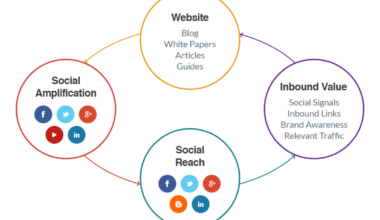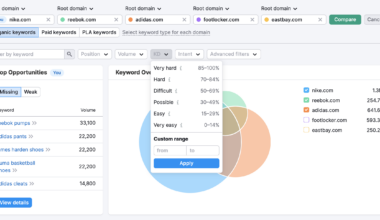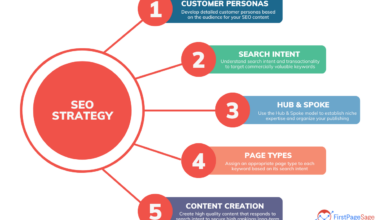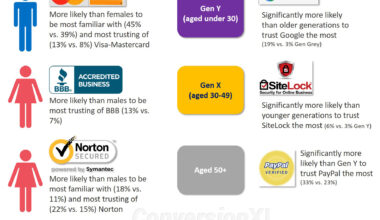Introduction: Understanding SEO for Reputation Management
Managing your online reputation is crucial in today’s digital age. With the internet being the primary source of information, it’s essential to have a positive online reputation. A good reputation can help you build trust with potential customers, increase your brand value, and improve your search engine rankings. However, a negative online reputation can lead to lost business opportunities, damage your brand’s image, and affect your bottom line.
That’s where SEO for reputation management comes in. Search engine optimization (SEO) is the practice of optimizing your website to rank higher in search engine results pages (SERPs). SEO for reputation management involves using SEO techniques to improve your online reputation, increase your visibility, and manage your online presence effectively.
In this article, we will cover the various aspects of SEO for reputation management. From keyword research to building backlinks, we will provide you with a comprehensive guide on how to use SEO to enhance your online reputation. By the end of this article, you will have a better understanding of how SEO can help you maintain a positive online reputation and improve your brand’s image.
So, let’s dive in and explore the world of SEO for reputation management!
The Importance of Keyword Research for Reputation Management
Keyword research is a critical component of SEO for reputation management. It involves identifying the words and phrases that people use to search for your brand and your industry. By doing so, you can optimize your online content around these keywords and improve your visibility in search engine results pages.
Here are some tips for conducting keyword research for reputation management:
1. Use a keyword research tool – There are many keyword research tools available online, such as Google Keyword Planner and SEMrush. These tools can help you identify relevant keywords and their search volumes.
2. Identify branded keywords – Branded keywords are keywords that include your brand name or variations of it. These are essential for reputation management as they help people find positive information about your brand easily.
3. Research industry-related keywords – It’s essential to identify and optimize for keywords related to your industry. Doing so can help you appear as an authority in your field and improve your online reputation.
4. Analyze competitor keywords – Analyzing your competitors’ keywords can help you identify gaps in your content and optimize for keywords they may be missing.
Once you have identified relevant keywords, it’s crucial to optimize your content around them. This includes incorporating keywords into your website’s content, meta descriptions, and headers. However, it’s essential to avoid keyword stuffing, which can negatively impact your search engine rankings.
In conclusion, keyword research is a vital aspect of SEO for reputation management. By identifying relevant keywords and optimizing your content around them, you can improve your online visibility, maintain a positive reputation, and increase your brand’s value.
Optimizing Your Website for Reputation Management
Your website is the first place people will go to learn more about your brand. Therefore, optimizing your website for reputation management is crucial. Here are some tips for optimizing your website for reputation management:
1. Ensure your website is mobile-friendly – With more people accessing the internet on their mobile devices, having a mobile-friendly website is essential. Google also considers mobile-friendliness as a ranking factor, so optimizing your site for mobile can improve your search engine rankings.
2. Use descriptive meta titles and descriptions – Meta titles and descriptions are the snippets of text that appear in search engine results pages. They should be descriptive and accurately reflect the content of your website. Optimizing them can improve your click-through rate and online reputation.
3. Use header tags to structure your content – Header tags (H1, H2, H3) are used to structure your content and make it easier to read. Using header tags can also improve your search engine rankings, as Google considers them a ranking factor.
4. Optimize your website speed – A slow-loading website can negatively impact user experience and your search engine rankings. Use tools like Google PageSpeed Insights to identify areas to optimize your site speed.
5. Include social proof on your website – Social proof, such as customer reviews and testimonials, can help build trust with potential customers and improve your online reputation.
6. Ensure your website is secure – Having a secure website (HTTPS) is essential for online reputation management. Google considers website security as a ranking factor and having a secure website can improve your search engine rankings.
By optimizing your website for reputation management, you can improve your online reputation and increase your brand’s value. Remember to prioritize user experience and provide high-quality content. A well-optimized website can also improve your search engine rankings, leading to increased visibility and more business opportunities.
Creating Quality Content to Enhance Your Reputation
Creating high-quality content is essential for enhancing your online reputation. Quality content not only helps you rank higher in search engine results pages, but it also helps build trust with potential customers and improves your brand’s image. Here are some tips for creating quality content to enhance your reputation:
1. Identify the needs of your target audience – Understanding the needs of your target audience is crucial for creating content that resonates with them. Use tools like Google Analytics to identify the demographics and interests of your website visitors.
2. Use a variety of content formats – Using a variety of content formats, such as blog posts, videos, infographics, and podcasts, can help keep your audience engaged and improve your online reputation.
3. Provide value – Your content should provide value to your target audience. This can be in the form of information, entertainment, or education.
4. Use keywords strategically – Incorporating keywords into your content can help improve your search engine rankings. However, it’s essential to use them strategically and avoid keyword stuffing.
5. Ensure your content is shareable – Make it easy for your audience to share your content on social media by including social sharing buttons and creating visually appealing content.
6. Regularly update your content – Regularly updating your content can help keep it fresh and relevant. This can also improve your search engine rankings and online reputation.
Remember, quality content is not just about the quantity of content you produce. It’s about providing value to your audience and building trust with potential customers. By creating high-quality content, you can enhance your online reputation, improve your search engine rankings, and increase your brand’s value.
In conclusion, creating quality content is a critical aspect of SEO for reputation management. By identifying the needs of your target audience, using a variety of content formats, providing value, strategically using keywords, ensuring your content is shareable, and regularly updating your content, you can enhance your online reputation and improve your brand’s image.
Building Backlinks to Improve Your Reputation
Building backlinks is an essential component of SEO for reputation management. Backlinks are links from other websites that point to your website. They are crucial for improving your online reputation, as search engines consider them a ranking factor. Here are some tips for building backlinks to improve your reputation:
1. Create high-quality content – Creating high-quality content is the best way to attract backlinks naturally. Focus on creating content that provides value to your audience and is shareable.
2. Guest posting – Guest posting involves writing articles for other websites in your industry. It’s an effective way to build backlinks and increase your online visibility. Make sure to choose reputable websites and include a link back to your website in your author bio.
3. Broken link building – Broken link building involves finding broken links on other websites and suggesting a link to your content as a replacement. Use tools like Check My Links to find broken links on relevant websites.
4. Be active on social media – Being active on social media can help you build relationships with other websites and increase your chances of getting backlinks. Share your content on social media and engage with other users in your industry.
5. Monitor your backlinks – It’s essential to monitor your backlinks regularly. Use tools like Ahrefs or SEMrush to identify any spammy or irrelevant backlinks and disavow them if necessary.
Remember, building backlinks is not just about quantity. It’s about building high-quality backlinks from reputable websites in your industry. By focusing on creating high-quality content, guest posting, broken link building, being active on social media, and monitoring your backlinks, you can improve your online reputation and increase your brand’s value.
In conclusion, building backlinks is a critical aspect of SEO for reputation management. By building high-quality backlinks, you can improve your online reputation, increase your visibility, and improve your search engine rankings. Remember to prioritize quality over quantity and focus on building relationships with reputable websites in your industry.
Final Thought: Monitoring and Maintaining Your Online Reputation
Monitoring and maintaining your online reputation is an ongoing process. Here are some tips on how to effectively monitor and maintain your online reputation:
1. Set up Google Alerts – Google Alerts is a free tool that notifies you when your brand is mentioned online. Use this tool to monitor brand mentions and respond promptly to any negative comments or reviews.
2. Respond to reviews – Responding to reviews, whether positive or negative, shows that you value your customers’ feedback and are committed to providing excellent customer service. Make sure to respond promptly and professionally.
3. Regularly update your social media profiles – Ensure your social media profiles are up-to-date and reflect your brand’s image. Regularly posting updates, engaging with your audience, and sharing valuable content can help improve your online reputation.
4. Monitor your search engine results pages – Regularly monitor your search engine results pages to ensure that your brand’s image is accurately reflected. Use SEO techniques to push down any negative results and promote positive ones.
5. Work with a reputation management company – If you’re struggling to maintain your online reputation, consider working with a reputation management company. These companies have the expertise and tools to help you manage your online presence effectively.
Remember, maintaining a positive online reputation is crucial for the success of your business. By monitoring your online presence regularly and responding promptly to any negative comments or reviews, you can improve your online reputation and increase your brand’s value.
In conclusion, SEO for reputation management is an essential aspect of digital marketing. By conducting keyword research, optimizing your website, creating quality content, building backlinks, and monitoring and maintaining your online reputation, you can improve your online visibility, build trust with potential customers, and increase your brand’s value. Remember to prioritize quality over quantity and always stay up-to-date with the latest SEO trends and best practices.






















